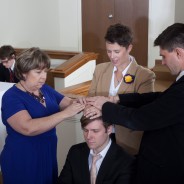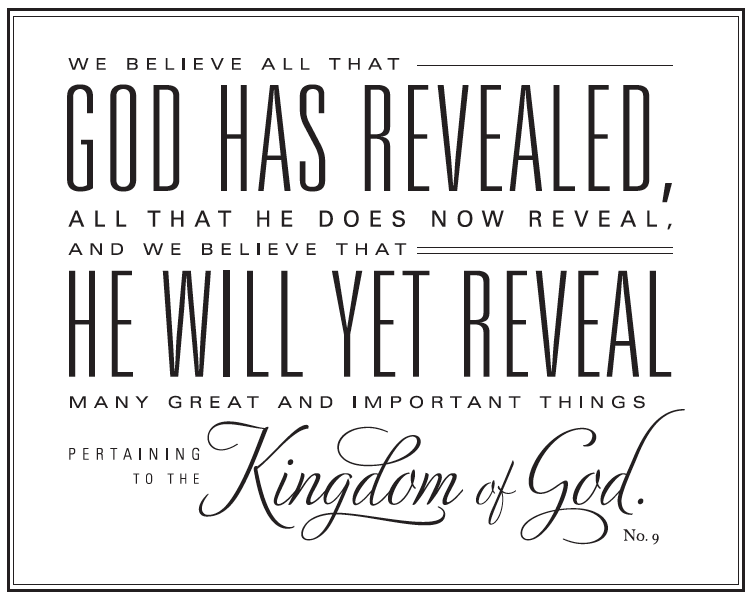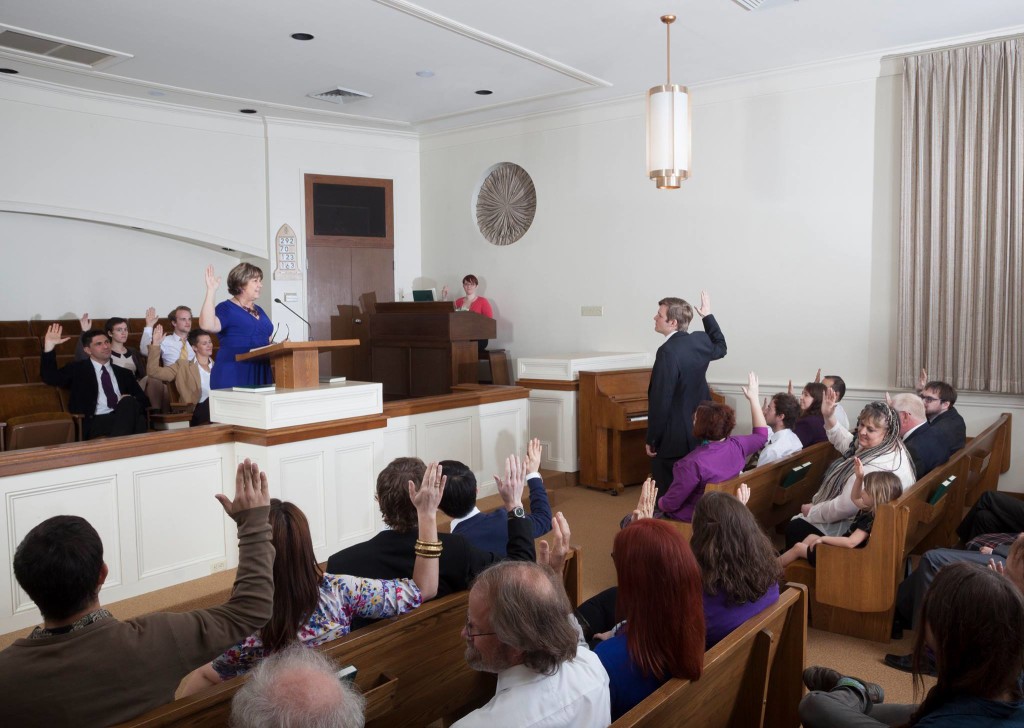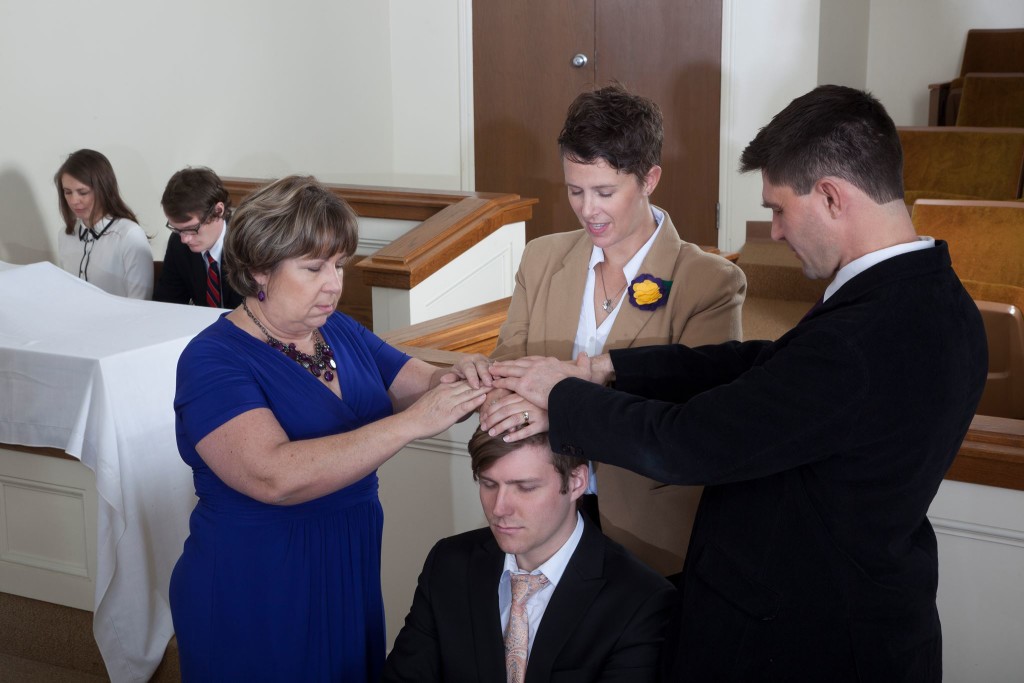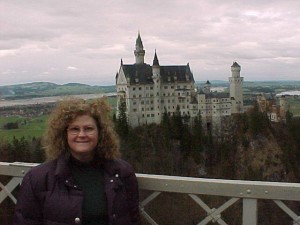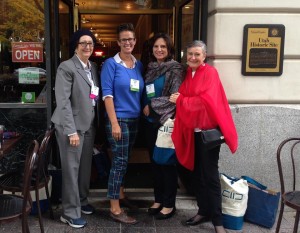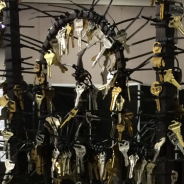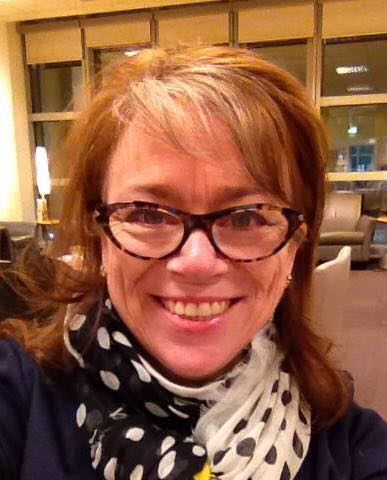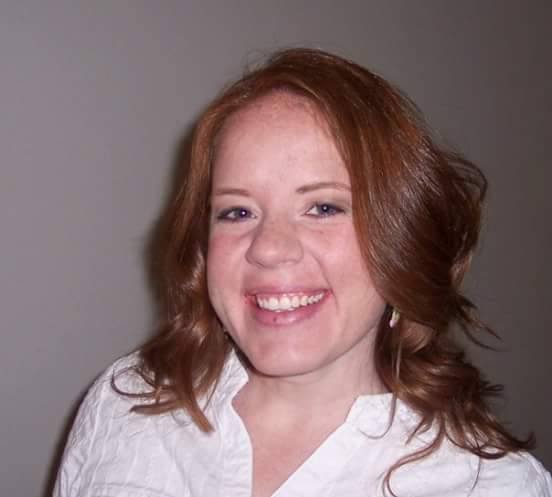Pass the Keys, Please
Keys are potent symbols of access and authority. In Mormonism, priesthood keys are understood to carry with them the right to direct and govern the use of priesthood power on earth. Like women in far too many faith traditions, Mormon women still have limited access to governance, pastoral authority, voice and a full range of service opportunities within our religious community. This is because priesthood, and the keys that allow access to its administration, presently are granted only to men.
It is our belief, however, that the fundamental tenets of Mormonism support full gender equality, including the ordination of women. As we approach this season of gift-giving, it is simply self-defeating to ignore or leave untapped the countless gifts, talents, abilities and aspirations that could be shared more readily, if we opened priesthood ordination to women.
As such, Ordain Women invites you to join us in our Christmas “Pass the Keys, Please” initiative. It’s simple. Just add a key or two to the decorations on your Christmas tree, wreath, garland or whatever. Then share your photos and your hope for women’s ordination on Facebook, Twitter, Pinterest and Instagram using the hash tag #PasstheKeysPleaz.
Honoring our Past,
Envisioning our Future.
Lorie Winder Stromberg, the author of this post, is on Ordain Women’s Executive Board as Long Term Planning Committee Chair.
My Brother, My Sister, My Sibling
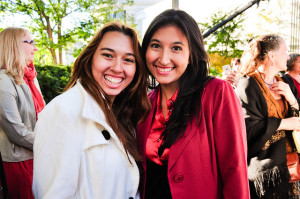 I spend a lot of time wondering how we as a religious community are contributing to the marginalization of people within our faith. Who are we not seeing? Who are we forgetting? Are we paying lip service to inclusion while excluding people in our day-to-day actions and language? Even though we have good intentions and make strides towards adapting our behavior, how deep is our commitment?
I spend a lot of time wondering how we as a religious community are contributing to the marginalization of people within our faith. Who are we not seeing? Who are we forgetting? Are we paying lip service to inclusion while excluding people in our day-to-day actions and language? Even though we have good intentions and make strides towards adapting our behavior, how deep is our commitment?
These questions have made me examine some of my interactions at church a little more closely. In the last few months, I have been increasingly bothered by the use of ‘Brother’ and ‘Sister’. Most of the time, when we address one another, we use gender labels as titles, which is also true in American secular culture. However, the use of brother and sister in reference to one another does not usually wane with familiarity. Whereas, in secular society, the person being addressed can suggest something less formal, in our church community, the use of these titles does not always disappear as we become more familiar with one another. The reliance on family relationships as titles to show our love and intimacy to one another is understandable when trying to build community, but we are still excluding people by using language that relies on this binary.
By using Brother and Sister, we reinforce in our interactions the misguided belief that there are only two genders. We silence and ignore anyone who does not ascribe to this binary by not using inclusive language that shows that we value all individuals.This is especially disconcerting since we have a more inclusive word that is familial. ‘Sibling’ includes all people and does not connote gender. I suggest we consider using Sibling to lovingly address one another and widen our family circle to include those who were previously forgotten.
The switch to ‘Sibling’ may seem difficult or awkward at first, but it is an important and concrete action we can take to manifest our internal commitment to inclusion within the Gospel. 1 John 3:18 says “My little children, let us not love in word, neither in tongue; but in deed and in truth. “ By making a greater effort to change our behavior and language, we create more room for love, diversity, and people within our faith community.
Your Sibling in Christ,
Natasha
Ready for Revelation.
I have been actively involved in the organization and leadership of Ordain Women since April of 2013. As a result of my role with OW, you can imagine the number of conversations I have had with all kinds of people, both inside and outside the Church of Jesus Christ of Latter-day Saints. The most common question I get asked, from Mormons and non-Mormons alike, is, “Why don’t you just leave and find a church that works for you?” Sometimes it is asked sincerely…. and other times it is obviously more of an invitation to leave. Here is my answer.
I stay because Mormonism is my home. This is where I found my Heavenly Mother and Father and this is where I learned about my divine nature. The gospel of Jesus Christ speaks to me, at a fundamental level and I cannot deny it. But of all the things that excite me most about Mormonism, I find incredible comfort and beauty in the principle of continuing revelation. The idea that our Heavenly Parents love us enough to speak to us today is at once groundbreaking and, yet, so obvious. The 9th Article of Faith states:
We believe all that God has revealed, all that He does now reveal, and we believe that He will yet reveal many great and important things pertaining to the Kingdom of God.
I love this passage so much that this past summer, when the Ordain Women executive board met at our annual retreat, I gave each of them a framed copy of it. I wanted them to remember that this principle—the gift of prophecy and revelation—is the foundation of our gospel and our church; and it is at the heart of the mission of Ordain Women.
For 2016, the Ordain Women theme will be “Ready for Revelation.” It is a statement and a call to action. For three years we have presented ourselves faithfully. We have studied, pondered, and prayed. We spent 2015 honoring our past—learning about our pioneer ancestors—and imagining what our future could be. We have pleaded with our leaders to hear us and we have been rebuffed and refused. We have done our part.
Now is the time to show what girls and women can be, if only we open our hearts and minds to the idea of ordaining women. In an effort to help us all imagine a church where women participate as full and equal partners, we will be sharing images depicting women fulfilling the duties of the Aaronic and Melchizedek priesthood and leading congregations. These images are powerful and inspirational. They may be shocking, but we invite you to sit with them and think about why they shock you. Ask yourself if they are wrong, or just new. I believe that when you take a moment to really look at them, you will see a church that truly honors and values women; a church where access to God is not limited by gender; and a church where all truly are alike unto God.
Now is the time to make that church a reality and now is the time to claim the promise of the 9th Article of Faith. Mormon Women are Ready for Revelation.
Ready for Revelation.
Debra Jenson, the author of this post, is Ordain Women’s Current Executive Board Chair.
Sunday Spotlight – Gail
Today’s Spotlight is from Gail. She has a unique perspective due to her training and occupation as a therapist in addition to having a worldwide perspective.
What are your early memories of church?
My very first memory of church was of sitting in the bishops’ office with some of the members. One of them gave me a Brach’s Butterscotch hard candy. I was hooked and it is a happy memory. My dad was the bishop in Alameda and I have fond memories of that area.
We moved to Lima, Peru when I was about three and a half. We were there for three years while my parents served as the Mission President. The memories of living in a third world country are both scary and delightful. The people were wonderful but the feeling of not being safe was always an issue.
My mother could see that the R.S. curriculum was not working for the Peruvian sisters. (she had real responsibilities with an official office) She got approval from the General R.S. board to write new and improved lessons that would be geared towards the members in the mission. This was before the R.S. was handed over to the men. Yes, women did it well.
When we returned home to the states my mother was called as the RSP for our ward and I saw women doing very cool stuff. She ministered to the sisters in the ward visiting some in mental hospitals, loving their children and including them so that they would not feel alone while their mother was away. She organized the bazars, made goods to be sold there and taught the principle of diversity.
Then it all went away. Women and the church became something else.
What did you learn about your heritage?
I was born into a multi-generation church family on my mother’s side. My paternal grandfather was a convert and married a woman with pioneer heritage. It was the women who I learned about.
My great aunt (paternal) lived in Berkeley and was a public historian. I learned about history from her. I learned to want to learn more about my world.
On my mother’s side I was told the stories of our pioneer women and learned of their strength. I never met my grandmother but learned from my mother and my aunts of her strength and courage and that women gave blessings. I heard that growing up from a young age. It was always there.
What have you learned from your adolescent days in the church?
I learned about the authority and the patriarchy. I learned that what was offered to me as a disabled young woman wasn’t enough. I learned that I was supposed to marry and have a family and that did not work in my life. I learned futility. I slipped away into minimal attendance. There wasn’t much for me in the chapel or the other rooms of the church. But I had the gospel and that was what mattered.
What did you learn about the priesthood?
This is where things get tangled up. I learned many things. I know of the women who gave blessings. My father gave me blessings. I had witnessed first hand in my life how powerful the gift of healing could be. I always knew I had the right to call on that power and I did. I let things grow within my soul. When my father passed when I was 31 I felt alone with the priesthood and it was after his passing that I began to rethink and to understand the power I had.
When I think more about it though I had felt a nudge on my mission and I had felt the in-equality present. I had felt the need for the sisters in the field to minister more powerfully. I kept quiet as I was already making waves in other ways. I served in Georgia and every presidents interview my MP got a mouth full about the racism in the church.
What did you expect to see when you moved to Europe?
I married in December of 1998 and we moved here three weeks later. The ward in Munich was filled with military and other expat families. It was pretty much what I had been led to believe I’d see. There were educated people who were doing their own things outside of their country of origin. Munich was nice. I thought it would continue. I didn’t have much contact with the German members.
I need to state that this is now home. While I might have U.S. citizenship I haven’t lived there for 17 years. As of now we aren’t returning to the states.
Women in Europe have things that LDS women in the U.S. may not have. Being a part of the church might be a demotion of sorts. When I asked some of my friends about feminism their response was “we don’t need that” and I began to learn that they have what we fight for. When women step into a church however they are stepping back in time.
When it comes to putting up a profile here we are isolated. We might be the only woman from our country; we are sticking out because there just aren’t that many of us that see the need for OW. The stories of my European sisters are of courage. I feel honored that they have allowed me to share with them.
What has living in different countries been like?
We transferred to The Netherlands and were in the eastern part of the country and the Expat/International ward was a two hour drive one way so we attended the local unit.
We’ve been in country for almost 15 years. We are now in the western part of the country. Most of our time in country we have attended local units. I have learned so much.
Women work and few are stay at home moms. Some of the women have to work just to earn the money for the families they have. They would be considered lower middle class in the U.S. Others want to use their education and plan on doing so from their adolescents. But there is this schism that I’ve had to learn to understand.
Members here tend to compartmentalize the church. In the states church culture intrudes into life and if you are in Utah the battle to keep it out of your life is even greater. I was raised in California so I didn’t have to deal with that aspect of the church culture. HERE? This is different.
People tend to make fewer friends but the friends they have are good friends. People don’t talk about religion and your colleagues are colleagues and when you leave the office you leave that there.
Life is about balance. I’d say the majority of the units here are branches and not small wards. (Wards are about 125 members) People tend to keep their heads and not get over involved in any one thing. If anything church is further down on the list. That being said not all members hold this attitude. The members in our branch are not well educated and struggle with understanding many concepts of gospel living. They have good hearts and really try hard to be good followers of Christ.
The unit is small and there aren’t enough men to do the priesthood work. There are about 30 members that attend. The stake has chosen to import priesthood to fill the positions that need to be filled in order for the branch to function. I was told that I don’t have callings because I’m a woman with a disability and my Dutch is not at the native level. The truth according to a Dutch guy I know is this: I’m a threat and as long as leadership is threatened by me my skills won’t be used. I feel awful about this whole situation and it shouldn’t be allowed so I find other ways to serve out of the church.
The women have been my greatest challenge. How I wish I could tell them about my heritage and that it really is a good thing to ordain women. They are afraid of anything that doesn’t come out of a manual. I think this is due more to lack of higher education and learning.
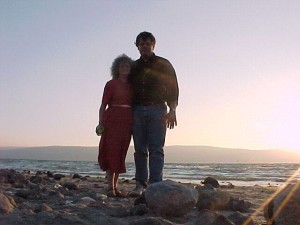
What makes you sad about the current situation in church?
I’m sad that men are burdened by the lack of inequality and that there is a lack of role expansion for them. How grand it would be to see men have options for development as nurtures and women have the opportunity to serve in the roles that they are capable of.
It bothers me that brilliant leaders are kept on the sidelines while mediocre stand-ins are forced into service when they might be off performing works of greatness with their children.
I am saddened and angry that women are told their divine role is to be a mother in this life, and if they are not able to be mothers that they are patted on the head (by men) and told to not fret because you will have that experience in the next life. And then they are injured in countless ways and set aside. I am angered by the fact that there is the “married club” and the “mother club” and that women can be left out of both of these clubs and it can be traumatizing and hurtful and that this issue is not addressed.
I’m sad that women who don’t have priesthood in their homes are seen as less than. They are made to feel as if here they cannot serve as the providers that this unique form of nurturance can provide. They are forced to turn to men who may lack in understanding their needs and challenges. They are made dependent on a male when what they might need is the power of the feminine.
I’m angered that men will give counsel to women when they fail to understand the issues. It saddens me that women take the counsel to to the men being authority figures.
I’m disappointed and angered that I can be told that as a woman of strength and a woman with a disability there is not a place for me in this church.
My gay family members left the church because there was not a place in the tent for them and this is uncalled for. I’m offended that men and women of color have been marginalized and treated condesendilngly.
What are your hopes for the future in the church?
Inclusiveness!!! OH I want to see this happen.
I want to see women standing tall and proud and not feeling like they have to hide the fact that they give blessings in the home. I want to see the sisterhood grow. I want to reclaim something that was lost.
I want to see every member in the church serve with joy and delight in the fact that their talents are being used to their full potential.
I hope to see my disabled sisters and brothers take healthy places within the church.
I want to see SLC understand that the gospel is the pure message of love and inclusion and that culture is how we celebrate our unique selves. I want to see an end to the exporting of Americanisms. I want and hope to see my Latin friends thrive, my European friends grow, my American friends and family understand.
I want to enlarge the tent and open up extended room for everyone that feels that this is their tribe.
What will have to occur for women to be ordained?
The doctrine is going to have to change and there is going to have to be some re-education. The Old boy club is going to have to bite the dust. The marriage and mommy club will need to be replaced with an identity that allows for women to be recognized for their talents, skills and desires.
Section 132 will have to be done away with. The church will have to come to terms with the polygamy issue as not divine. This will open up the way for women to have a full equality. This will involve rethinking our theology.
The church is going to have to replace the old boy network with a new way of doing business. This means that in primary boys will not have privilege. At age 12 they will not be ordained as deacons. The budgets for both boys and girls will equalize. Young women will be allowed to explore their identities in the same manner as boys and young men. Ordination will occur in both genders as they step up and show by their merits that they understand the responsibility they are taking on: In other words no more social ordination.
When you really think about it what we are asking for is a remaking of how things are done in the church and in homes. We are asking for more substance, more focus on Christ, and more unity. When I think about what OW is doing I am awed.
This means that we have serious work to do to get ready for the change we are seeking.
Women in the church are going to have to give up something marginalizing for something expansive. This is what will take the real effort and time. Our heavenly parents may be ready for this to happen but are we ready to do the hard work to make this happen? This is where I’m putting my thought, time and effort.
I am excited for the future but I’m also focused on the present and raising awareness. It will be a moment to to rember when the revelation is given. Where will you be and what will we each do?
Gail is a therapist who works both online and face to face with clients. You can find her at MMHA (Mormon Mental Health Association) http://www.mormonmentalhealthassoc.org/ where she is listed in the California section and hopes soon to add the Netherlands listing. She also blogs about disability issues at: https://agiftofbeingheard.wordpress.com/
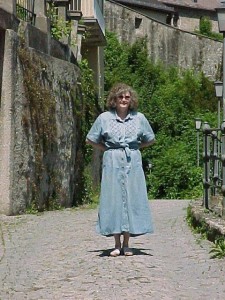
The Priesthood is a Spiritual Technology for Women Too
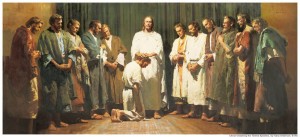 I would like to share a new perspective on priesthood: that of a Mormon Feminist Transhumanist. Although some may criticize me and my minority position in our vulnerability, I feel it is important to offer this perspective with authenticity and honesty.
I would like to share a new perspective on priesthood: that of a Mormon Feminist Transhumanist. Although some may criticize me and my minority position in our vulnerability, I feel it is important to offer this perspective with authenticity and honesty.
As context, in The Church of Jesus Christ of Latter-day Saints (the largest Mormon denomination), priesthood is the power and authority of God given to man, including the authority to perform ordinances and to lead the Church. Presently, ordination and full access to priesthood is reserved for men only. Although women may participate in limited ways, men preside over all women’s positions and auxiliaries, and women are excluded from presiding in Church governance.
In this post, I will first illustrate the harmful effects of excluding women from full participation in the priesthood through a personal narrative. I will then comment on desires, benefits, and risks that would accompany the ordination of women.
A Father’s Blessing
It’s a Mormon tradition for the father of the household to give each child a priesthood blessing before the beginning of each school year. They are often referred to as “father’s blessings”. It’s a lovely tradition. I remember, as a young girl, taking turns with each of my sisters, sitting in a chair, while my father laid his hands on our heads and blessed each of us. They are happy memories.
However, when I was 14 my father was excommunicated from the Church on Easter Sunday. He was cut off from the Mormon community as a form of discipline and was deemed unworthy to exercise the priesthood. My father was the only male in our home. This left my mother, two sisters, and me to fend for ourselves in matters of the priesthood.
The following school year I would not have a father’s blessing. Of course, the typical response to this particular predicament is to call the home teachers or bishop to come provide access to a priesthood blessing.
If only it were so simple.
The reality is if I were to ask my home teachers to come to our home to give me a priesthood blessing, my father would have the humiliating experience of sitting by and watching another man preside in his home and bless his daughter. My mother would have the humiliating experience of watching another man come into her home and bless her daughter because she was deemed an unfit candidate for the priesthood due to the fact she was female. As for me, I was a teenage girl going through puberty, starting my period, experiencing other bodily changes, and what I really needed was a priesthood blessing from my parent, not from a couple of well-meaning men from my ward whom I had hardly spoken a word to.
No priesthood blessing was worth the humiliation it would cause my family, so I concluded it was better to go without.
I cried in bed the night before school started. I fervently prayed to Heavenly Father with genuine intent asking Him to bless me with His Priesthood. I waited quietly and patiently for a response but felt nothing. I was alone.
After I finished crying, I fell asleep that night feeling like a silly girl with shattered dreams in a fraudulent illusion. I suppose we all have to grow up someday.
A New Perspective
My freshmen year of college, I was engaged with a wonderfully devout Mormon who wore the priesthood so lightly it didn’t even seem to matter that I didn’t have it. We were married in the Portland temple, and my fragile faith was crushed by an overwhelming sense of sexism.
A few years later, I delivered a healthy baby boy. After the birth of our first child, the tradition of a father’s blessing shortly followed.
I watched my husband hold our tiny baby in his strong but gentle arms. During the blessing he spoke words that deeply resonated with me. I still had no intention of believing that the priesthood was anything more than a bunch of made-up nonsense, and I had no interest in receiving a priesthood blessing for myself, but nonetheless hearing his blessing changed me.
I became grateful to have a husband who held the priesthood, not because I valued any unilateral male dependency. No, certainly not. I changed because I was able to see the priesthood from a new perspective — a completely natural, yet less cynical perspective.
I could see the priesthood as a spiritual conduit for bonding that provoked a collective mood of love and devotion. That day I realized what I missed most about not having the priesthood directly in my life was the opportunities to express and share love through ritualistic blessings and ordinances.
When my father blessed me before each school year, he spoke kind and thoughtful words that he probably would have never said had the opportunity of an annual priesthood blessing not presented itself. We formed positive memories and experiences that further formed our worldview. But the influence of those experiences was stunted once the priesthood was removed from my family. I wonder what experiences my mother, sisters, and I could have shared if the priesthood were freely available to us.
When my husband blessed our child with several other men, including my father, there were tangible expressions of love, devotion, and power that changed my husband as a man and father. How would those experiences shape him as a human being? How would those rituals affect our family dynamics? If my husband were removed from the equation, what spiritual technology could I use to recreate those meaningful memories and experiences for my children, if not the priesthood?
A Spiritual Technology
Priesthood is a spiritual technology and holds transformative power that is worth experiencing and exploring. The power lies in opportunities and access, just like any other technology. Priesthood technology has the potential to strengthen interpersonal relationships, forge bonds of spirituality, shape meaningful worldviews, and present opportunities for growth, leadership, and development.
Priesthood power lies not in any supernatural or mystical forces. Priesthood power lies in our willingness to let it transform us. But without access, the power is diminished.
When we limit equal opportunity and deny access to those positive experiences, we are weakening ourselves from within. When we thwart the righteous desires of women who wish to use that technology for good, we diminish the collective influence the priesthood has to offer.
The Desires of Abraham
My desire for female ordination is neither an unreasonable demand nor a groveling plea. Rather, it is a respectful and mutually beneficial desire that, I feel and think, merits our most serious consideration. It would further alleviate unnecessary suffering while providing more intimate opportunities for spiritual growth and development. And it would establish equal opportunity for us all in our desires to become Christ.
Abraham, that great priesthood patriarch himself, establishes precedent for desiring and seeking ordination:
“And, finding there was greater happiness and peace and rest for me, I sought for the blessings of the fathers, and the right whereunto I should be ordained to administer the same; having been myself a follower of righteousness, desiring also to be one who possessed great knowledge, and to be a greater follower of righteousness, and to possess a greater knowledge, and to be a father of many nations, a prince of peace, and desiring to receive instructions, and to keep the commandments of God, I became a rightful heir, a High Priest, holding the right belonging to the fathers.”
Abraham, it says, was “desiring” and “sought … the right [to be] ordained” to possess greater knowledge and righteousness. And as a follower of righteousness, he “became a rightful heir, a High Priest”.
Women who seek ordination for further knowledge and righteousness are not so different from Abraham, who was rewarded for his righteous desires and became a High Priest.
Desires of the Minority
I recognize that women who desire ordination are the minority, but being in a minority does not equate with being wrong. People who desired and advocated for racial equality concerning blacks and the priesthood were once the minority until they weren’t. Mormons are a minority among Christian denominations, but does that make Mormonism wrong or unworthy of consideration? Minorities bring valuable insights that are often overlooked.
Some argue that most women “don’t even want the priesthood”. I would generally agree. However, I would urge women who speak out against ordination to consider: does your lack of desire denote that another’s genuine desire is unholy or unrighteous? Not necessarily. As for Abraham, seeking ordination may be for her a manifestation of faithful and righteous desires.
I would ask Mormon women who do not desire the priesthood to empathize with those who have perhaps had less favorable circumstances, and to contemplate how women could benefit from ordination in ways they have perhaps not yet considered.
I would also ask Mormon women to consider that not all men desire priesthood ordination either, yet we encourage young males to develop a strong and earnest desire to serve with priesthood authority, as exemplified in the Aaronic Priesthood manual: “Each young man will understand the duties of a deacon in the Aaronic Priesthood and will desire to magnify his calling as an Aaronic Priesthood holder.”
I trust that if the opportunity presented itself, faithful young women would be more than capable of developing a similar desire and would embrace the responsibility and duty just as our faithful young men have.
The Morality of Female Ordination
It is also worth considering if denying women priesthood ordination is actually immoral. In Parallels and Convergences, compiled by A. Scott Howe and Richard L. Bushman, we learn about quantifying morality through a “potentiality test”:
“A better way to intuitively explore morality issues is to use the ‘potentiality test’. The potentiality test helps expand the number of choices and opportunities available and eliminates all boundaries. Actions and consequences are placed on a scale by degree rather than being black and white, motivation is built into the test because it attempts to increase the number of choices available in the future. The participant becomes less and less a victim of circumstances and gains more and truer freedom. An outcome that results in a greater number of potentialities has greater value.” (p 95)
As I see it, the ordination of women would greatly increase the number of choices in the future, and each participant would become “less a victim of circumstance”. This is not to say that female ordination should proceed haphazardly, without deliberation, or carelessly in relation to traditional order. Quite to the contrary, caution and tradition can also expand opportunities to the extent that they do not become oppressive. Carefully combined, tradition and inclusion would increase future potentialities for priesthood influence, thus making ordination a moral action by the standard of the potentiality test.
This is My Voice
Each day we wait, we lose one more woman, one more woman is marginalized, one more child goes without a priesthood blessing, and one more woman realizes her desires to be like Christ are not supported by her religion. One by one, more hearts become jaded by the ignorance of those who won’t share her pain. When she becomes disenchanted with the priesthood and its potential influence for good, she may leave her religion altogether, believing that the priesthood is nothing more than a superstitious tool used by an elitist power structure to manipulate and subjugate women.
Surely, God is waiting on us to exercise our agency, love, and compassion to “comfort those that stand in need of comfort“. In a time when it seems more people are leaving their religions than ever before, there are women who are still willing to contribute. Let’s not let another moment go by where a woman goes unsupported in her desires to be Christ. Let’s greet her with enthusiasm and excitement. I trust in a benevolent God that would encourage those righteous desires.
Imagine the opportunities of love and compassion we could create for families and communities if women were granted equitable authorization to the priesthood technology. Now should be a time of celebration!
Joseph Smith once said, “Who are better qualified to administer than our faithful and zealous sisters whose hearts are full of faith, tenderness, sympathy, and compassion? No one.” (Relief Society Minutes, April 28 1842)
More recently, the encouraging words of Elder Nelson called to women in October 2015 General Conference, “We need you to speak out … We need your strength, your conversion, your conviction, your ability to lead, your wisdom and your voices … My dear sisters, whatever your calling, whatever your circumstance, we need your impressions, your insights, and your inspiration … We need women who have the courage and vision of our Mother Eve … So today I plead with my sisters of the Church of Jesus Christ of Latter-day Saints to step forward! Take your rightful and needful place … in the kingdom of God.”
I feel obliged by the request of Elder Nelson to step forward. This is my courage. This is my strength. This is my conviction. This is my insight. This is my inspiration. This is my vision.
I am one such “zealous sister” and this is my voice.
Blaire Ostler graduated from the Academy of Design and Technology, Seattle, with a BFA in Design. She and husband Drew have three children. She currently serves on the Board of Directors of the Mormon Transhumanist Association.
For the full article “The Priesthood is a Spiritual Technology for Women Too” visit the Transfigurist.
The Repeal of the Second Article of Faith
As a young boy growing up in Utah, I attended primary after school one day each week. At the front of the chapel in the Bountiful Tabernacle, where I attended primary, was a replica of the old Primary Hospital, with a slit in the top to insert pennies. As primary children, we were taught that God has a special place in his heart for little children. Every year on our birthdays, we were supposed to bring pennies to drop in the slot, and let God know that we cared about other little children like use. The pennies were used to ensure that all children had the care they needed, if they became sick.
It is hard to believe, but my church just announced that it is banning a group of these little children from any possibility of entering heaven by way of baptism or participation in Gospel ordinances and callings. This ban is not based on anything a child has done, but rather on the sexual orientation of the child’s parents. This act by my church must be clearly and loudly condemned. It cannot be allowed to stand.
As primary children, in addition to putting pennies in the hospital shaped bank, we were taught the Thirteen Articles of Faith. We were told that as Mormons we rise to a higher level of morality, because of the Second Article of Faith, which reads:
We believe that men will be punished for their own sins, and not for Adam’s transgression.*
Memorizing this article of faith in primary, I somehow missed the asterisk at the end. I mistakenly thought that this article of faith was stating a universal principle of individual accountability. I believed that it meant that each individual is personally responsible for what she does. I understood it to say that nobody else will be accountable for my sins, and I will not be held responsible for the sins of another.
The first time I saw the asterisk was in the Temple. During the endowment ceremony, I realized that the doctrine taught in the Temple did punish women for Eve’s transgression. According to this doctrine, women will forever be held to an inferior state, and suffer physical pain because of Eve’s transgression. I closely checked the texted of the Second Article of Faith, and realized that only “Adam’s transgression” is mentioned. Sure enough, the door was wide open to punish women for the acts of Eve. In the Temple, I realized, the Second Article of Faith is not a “universal” statement of individual accountability, as I was taught in primary. Rather, it only applies to males.
With the announcement of the new policy, the asterisk has now entirely swallowed the “universal rule.” The new policy reads:
Children of a Parent Living in a Same-Gender Relationship
A natural or adopted child of a parent living in a same-gender relationship, whether the couple is married or cohabiting, may not receive a name and a blessing.
A natural or adopted child of a parent living in a same-gender relationship, whether the couple is married or cohabiting, may be baptized and confirmed, ordained, or recommended for missionary service only as follows:
A mission president or a stake president may request approval from the Office of the First Presidency to baptize and confirm, ordain, or recommend missionary service for a child of a parent who has lived or is living in a same-gender relationship when he is satisfied by personal interviews that both of the following requirements are met:
1. The child accepts and is committed to live the teachings and doctrine of the Church, and specifically disavows the practice of same-gender cohabitation and marriage.
2. The child is of legal age and does not live with a parent who has lived or currently lives in a same-gender cohabitation relationship or marriage.
This policy is saying that the saving ordinance of baptism, along with other important ordinances and callings, are to be denied to children because of an act of a parent, and not for any act or sin committed by the child. If the child were to die after the age of accountability (eight), under accepted church doctrine, this policy would deny salvation and exhalation to that child for the alleged sins of a parent, and not for any act within the control of the child.
We are left with only two possibilities. 1) The brethren have truly abandoned individual responsibility for sin as a true principle of the Gospel of Jesus Christ, or 2) they no longer believe in the saving power of Gospel ordinances, and instead have decided that their hate-filled anti-LGBTQ rhetoric takes precedence over the lives of innocent children.
Honoring our Past,
Envisioning our Future.
Mark Barnes, the author of this post, is on Ordain Women’s Executive Board as the Financial Chair.
We Do Not Stand Alone
Two weeks ago I attended the Parliament of World Religions in Salt Lake City, Utah. It was a gathering of more than 10,000 people of faith from around the world and it was powerful. I watched as hundreds of people hung a key on the Ordain Women art exhibit titled “Keys,” adding their support for religious gender equality. Every time the bell rang, I felt it reverberate in my soul.
While at the Parliament, I participated in a panel with three amazing women. Lesley Sachs is Executive Director of Women of the Wall, a group advocating for equal participation of women at the Kotel, or Western Wall, in Jerusalem. Ms. Sachs came to Salt Lake from Jerusalem to share wisdom earned through more than 25 years (and a couple of trips to jail) in pursuit of religious social justice. As I write this, I am wearing one of my new favorite possessions, a shirt that says “I stand with Women of the Wall.” I wear it when I need to feel fierce.
Also on the panel was Jane Via, a Roman Catholic woman ordained to the priesthood and excommunicated for it. Ms. Via said that her call to the priesthood was an extension of her feminism: she felt she had exhausted all other avenues in working for women in the Catholic Church. She shared her story of being removed from the institution of her faith, but not the gospel of her faith. And she continually referenced all women, saying that ordination of women is not just for women who want to be ordained—and if it is, then those women shouldn’t be asking. Ordination of women will be a service and benefit to all women.
The third woman on the panel was Dr. Laila Al-Marayati. Dr. Al-Marayati is an Islamic activist who has served on the U.S. Commission on International Religious Freedom and currently chairs the board of directors for KinderUSA, a group working to improve the lives of Palestinian children. She spoke of her experience serving on multiple interfaith councils and said that the most common thread through Abrahamic traditions is the oppression of women. Yet, Dr. Al-Marayati continues her work, because she sees religious gender equality clearly in the foundational text of her faith.
To meet these incredible women was a dream come true for me. They are my heroes and my inspiration. Their struggle came before mine, but it is my struggle too, for I have benefited from it. I live in a world with a little more equality because Lesley Sachs and the other Women of the Wall have read Torah at the Kotel. My daughters will one day have the chance to see a mass offered by Jane Via, and in her they will see their own ability to minister. And when I stand to speak for the ordination of women in the Mormon church—my own corner of Abrahamic faith—I will know that I am not alone in seeing gender equality as a hallmark of holiness. But mostly, I am grateful for three new friends who offered advice and wished us well. We have sisters around the world who stand with us, and that means everything.
Debra Jenson, the author of this post, is the current Chair of Ordain Women’s Executive Board.
For Heaven’s Sake
The following was presented by OW Long-term Planning Chair Lorie Winder Stromberg as part of a panel discussion about the Ordain Women “Keys” art installation at the Parliament of the World’s Religions on Monday, October 19, 2015.
“The year we all turned twelve,” writes Mormon memoirist Joanna Brooks, “the boys in my Sunday School class received the priesthood: the spiritual authority to lead, bless, and baptize, passed from Mormon father to Mormon son, by the laying on of hands.
That’s what Chuckie, Mike, and Brian got for their twelfth birthdays.
I got The Marie Osmond Guide to Beauty, Health & Style.”
Priesthood in Mormonism is the power of God given to all men to perform Church ordinances, lead Mormon congregations, offer blessings of healing and comfort, and preside over Mormon homes. This democratization of religious authority is laudable, and the belief that God’s power is to be shared rather than hoarded or held by an elite clergy remains one of the most compelling doctrines of Mormonism. However, there’s one slight hitch–women are not ordained to the lay priesthood available to men. This means all men in the LDS Church have a spiritual and operational authority that women do not. Because institutional power in the Church is tied to priesthood office, women, though allowed to speak, teach and pray in church meetings, are excluded from nearly every position of clerical, fiscal, ritual, and ultimate decision-making authority. As many Mormon women have observed, their adolescent sons have more substantive authority than they do. Even women’s significant work within Church auxiliaries is just that—auxiliary—and subject to the direction of male priesthood leaders. This pattern persists in Mormon homes. Despite encouraging full partnership between husbands and wives, the Church’s Proclamation on the Family insists that men still preside. This probably sounds achingly familiar to many of my Southern Baptist and Evangelical sisters, as would the separate-but-equal, complementarian rhetoric employed by Mormons that uses motherhood to circumscribe women’s lives and was used more generally in the past to deny woman access to the voting booth, political office, education, employment and, even still, spiritual authority in our faith communities.
The full extent of the Mormon Church’s gender-exclusive priesthood policy is summed up succinctly in the following statement by Elder Bruce C. Hafen, a Mormon Church leader and former dean of the J. Reuben Clark School of Law at Brigham Young University: “The one category of blessing in which the role of women is not the same as that of men holding the priesthood is that of administering the gospel and governing all things.” A mere trifle.
We refuse to tolerate discrimination against women in our secular institutions. Why do we so readily accept it in our religious communities?
In her poem, Pope Francis in Rio, Alla Renee Bozarth writes:
Quiero lío …
he says.
He says it
quite clearly.
In front of more
than a million people
he says it.
In the city named River,
the pope says what is
loosely translated as,
I want you to make a mess,
or in the street vernacular,
I want you to screw up ~
but what he really said is
those two words,
literally the poetic,
the romantic word for
I desire, and the cracking
concrete word, trouble
There was no menace
or challenge in his words.
They were lovingly spoken.
He meant what he said
in a way suffused with hope
and faith in the listeners
as well as in the living flames
and rushing waters of Holy Spirit.
The good papa,
the hugging papa,
the twinkling, chuckling,
good-natured, humble
man who refuses
the pope’s crown,
the false trimmings,
the scandalous trappings—
he says he wants us
to make trouble . . .
Us?
To whom was he speaking?
The youth? The smart and restless?
Was he saying it to everyone?
Old, young, male, female?
That’s us, Sisters.
Let’s be our holy best
and blessed selves
and show what we
can do.
Quiero lío, he says?
Let’s give it to him.
“Sometimes,” Bozarth also writes, “we have to ‘raise hell, for heaven’s sake.’”
In the Mormon faith, former Church President Gordon B. Hinckley, when asked by a reporter if the policy excluding women from priesthood ordination could be changed, said, “Yes. But there’s no agitation for that.” Though not exactly what either church leader had in mind, we at Ordain Women are responding to President Hinckley’s challenge, just as our Roman Catholic sisters at the Women’s Ordination Conference are answering Pope Francis’s call, “Quiero lío …”
Like many here, I have faith in the ability of religion to liberate, rather than subjugate, women. Which shall we choose?
We at Ordain Women assert that the fundamental tenets of The Church of Jesus Christ of Latter-day Saints support gender equality, including the ordination of women. Indeed, in Mormonism, spiritual empowerment is the sum of God’s hope for us as men and women. Further, if priesthood is ultimately about love and service, we ask, why not empower all to use it? Some accuse women of being power-hungry if they advocate for women’s full inclusion in their faith traditions, treating God’s power as if it were in short supply. What they fail to acknowledge is that there is no shame, nor are there accusations of improper ambition, attached to men who aspire to ordination, pastoral leadership, the opportunity to preach and lead others in prayer, or stand, pray and read sacred texts in holy places. Neither should there be for women.
It is true that power in institutions, including churches, can be wielded coercively and abusively. This is one reason women are leery of power, and Mormon scripture rightly warns about its ability to corrupt. (See Doctrine and Covenants 121:39) However, having power within an institution is preferable to institutional powerlessness, and having power can enable us to do tremendous good, particularly if we use it to serve and empower others.
Why do we women remain in religious institutions that marginalize us? There are many reasons–belief, conviction, the desire to serve, cultural identity, family ties, political and societal influences, to name just a few. The point is, if we care about a just society and recognize that religions significantly impact the broader culture, we all have a stake in whether or not our religious institutions are equitable. And so we have a choice. We can either perpetuate inequality through silence and inaction, or we can faithfully agitate and make holy trouble.
It’s time—past time, really—that we gather as an interfaith community to state, unequivocally, equality shouldn’t stop at the doors of our churches, shrines, synagogues and mosques.
In Mormonism, as in many religious traditions, keys represent access and carry with them significant ecclesiastical and administrative authority. Accordingly, Ordain Women has created “Keys,” an interactive initiative to call attention to the need for women to have full access to ecclesiastical power and the ability to serve within their faith communities. Designed in collaboration with artist Ginny Huo, “Keys” is an on-going public art project where all can register their support for religious gender equality. The keys we invite you to attach today—and that others can continue to attach—embody this belief.
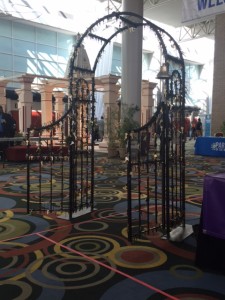
Executive Board Announcement
Working on the Ordain Women board is a privilege and challenge. I have been honored to work with amazing people. Some left way too early for my selfish liking, because I was not done learning from and getting to know them, but it was the right time for them. I am grateful for every person I have worked with and am sad to say goodbye, most recently, to Gina Colvin and Sean Carter. But the time commitment is real, the stress is real, and the personal sacrifice is all too real. I admire people for agreeing to serve; and I admire people even more for recognizing and acting when it is the right time to step aside. Ordain Women will continue to grow and evolve over time and to adjust to the needs of the organization. With that, we are looking forward to the future and are proud to announce the addition of three new Executive Board Members. Natasha Smith, Julia Murphy and Leah Marie Pickren Silverman.
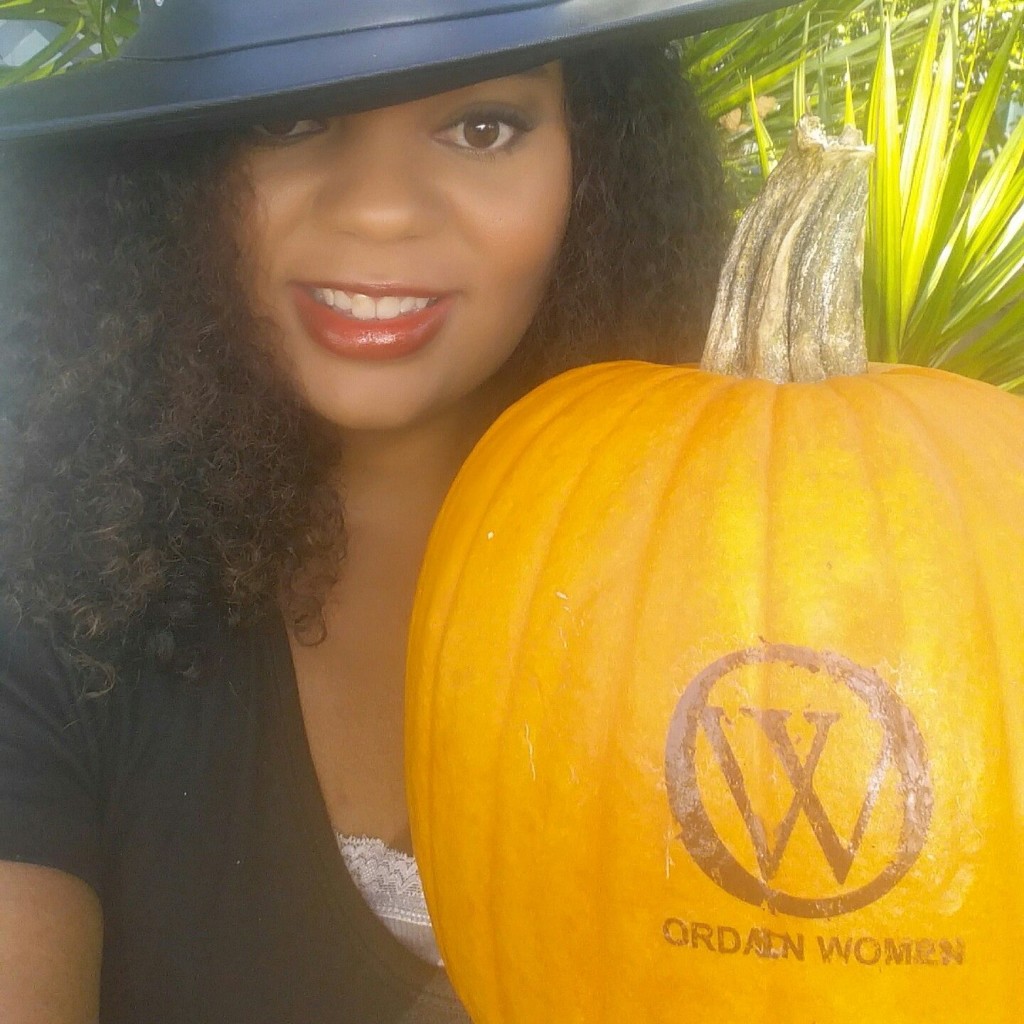
Natasha Smith works as a paralegal in Hawaii by day and advocates for religious equality by night. She has worked tirelessly on our Intersectionality Committee and is also a blogger at FEMWOC.com. Natasha is passionate and considerate and am honored she has decided to join our team. Take a minute to read her profile here.
Julia Murphy is a behavioral health therapist and a baker as well as a strong feminist. She lives in Germany with her life partner and blogs at The Sugary Shrink. Julia will be taking over as our International Committee Chair and brings with her passion, perspective and much needed humor. You can read more of her amazing story here.
Leah Marie Pickren Silverman studies Public Administration and is raising 3 boys in Virginia. She has been an invaluable member of the OW leadership team for over 2 years and we appreciate her perspective. She is a Co-Chair of the Social Media Committee and is passionate about making Mormonism better for everyone. Leah Marie’s profile can be read here.
Honoring our Past,
Envisioning our Future.
Joanna Wallace, the author of this post, is on Ordain Women’s Executive Board as Co-Chair of the Social Media Committee.
Mormon Feminism
As we come to the end of 2015, I am reflecting on the theme that has guided Ordain Women’s actions for the past year: Honoring Our Past, Envisioning Our Future. You may recall seeing photographs representing the many ways Mormon women exercised priesthood power through blessings and anointings. They have been lovely to see and inspirational to read about. But our past is more than pioneer history and in recent days my mind has turned to the more contemporary actions on which Ordain Women’s foundation is built.
In December of 2012 I was heavily engaged in the online conversations regarding Wear Pants to Church Day. It was my first foray into Mormon activism. I had been devastated by the harsh words, and frankly unchristian, responses posted on the Facebook page. (I should note that I was not an organizer of the event.) At one point, the main organizer received death threats. On that cold Sunday I walked into my church building—the same building I had attended for 15 years—wearing pants. They were the nicest pants I had and I planned my outfit very carefully to make sure I was bringing my very best self to worship. My two daughters joined me in their best slacks and my teenage son walked behind me in a purple dress shirt. I was filled with fear but determined to demonstrate my support for the idea that this is a church that should be open to all.
Just a few months later, in 2013, I participated in Let Women Pray. This letter writing campaign to have a woman offer a prayer in general conference was my first attempt to directly approach the leaders of my church. I prayed and pondered about what I would include in my letter. My youngest daughter sent a coloring page of President Thomas S. Monson asking him to have a girl pray because it was only fair. In April, when Sister Jean A. Stevens gave the benediction, I wept. It was such a simple moment, and yet meant so much.
The history of Mormon feminism and womanism goes back generations. We have a beautiful heritage of strong and powerful women using their spiritual gifts and publicly working for equality. I love these stories. But for me, activism was only possible because brave women of today saw inequality and openly addressed it. I learned by following the organizers of Wear Pants to Church Day and Let Women Pray and their campaigns prepared me for the work I do today with Ordain Women. I am grateful for our history, both old and new, and look forward to a future wherein these women will see the fruits of their labor and gender equality in our community.
Honoring our Past,
Envisioning our Future.
Debra Jenson, the author of this post, is the current Chair of Ordain Women’s Executive Board.









